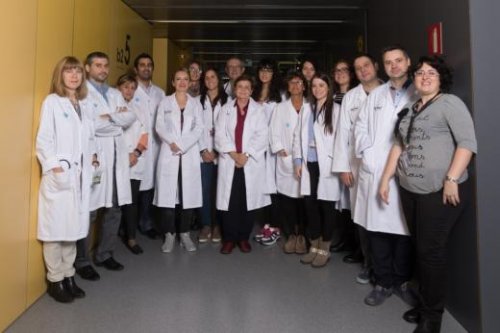Researchers at IRBLleida determined that excessive activation of vitamin D in blood vessels promotes the accumulation of calcium in arteries in kidney patients
The results of the research allow to identify new treatments to prevent vascular calcification in chronic kidney disease
Lleida, March 8th, 2017
Researchers at the Lleida Biomedical Research Institute Dr. Pifarré Foundation (IRBLleida) and the University of Lleida (UdL) have discovered that the uncontrolled increase of vitamin D activation in the arteries in renal patients favors vascular calcification (hardening of the Arteries). This is a common phenomenon in patients with chronic kidney disease and has been linked to the causes of cardiovascular disease. The Vascular and Renal Translational Research Group, a consolidated research group of the University of Lleida and the IRBLleida and recognized by the Generalitat of Catalonia, has recently published two articles (one in the Journal of Bone And Mineral Research and the other in PlosOne) in which excess vitamin D is related to vascular calcification.
Vitamin D helps to absorb calcium and allows the formation of bones in children. Patients with chronic kidney disease have a decrease in vitamin D levels, which is also responsible for the development of secondary complications such as hyperparathyroidism, which leads to demineralization of the bone and increases the risk of fractures. For this reason, it is common practice to treat these patients with active (calcitriol) or inactive (calcidiol) vitamin D. Previous studies have found that active vitamin D has potential toxic risks. The recent finding indicates that inactive vitamin D may also have potentially harmful effects and that physicians should continuously monitor treatments.







